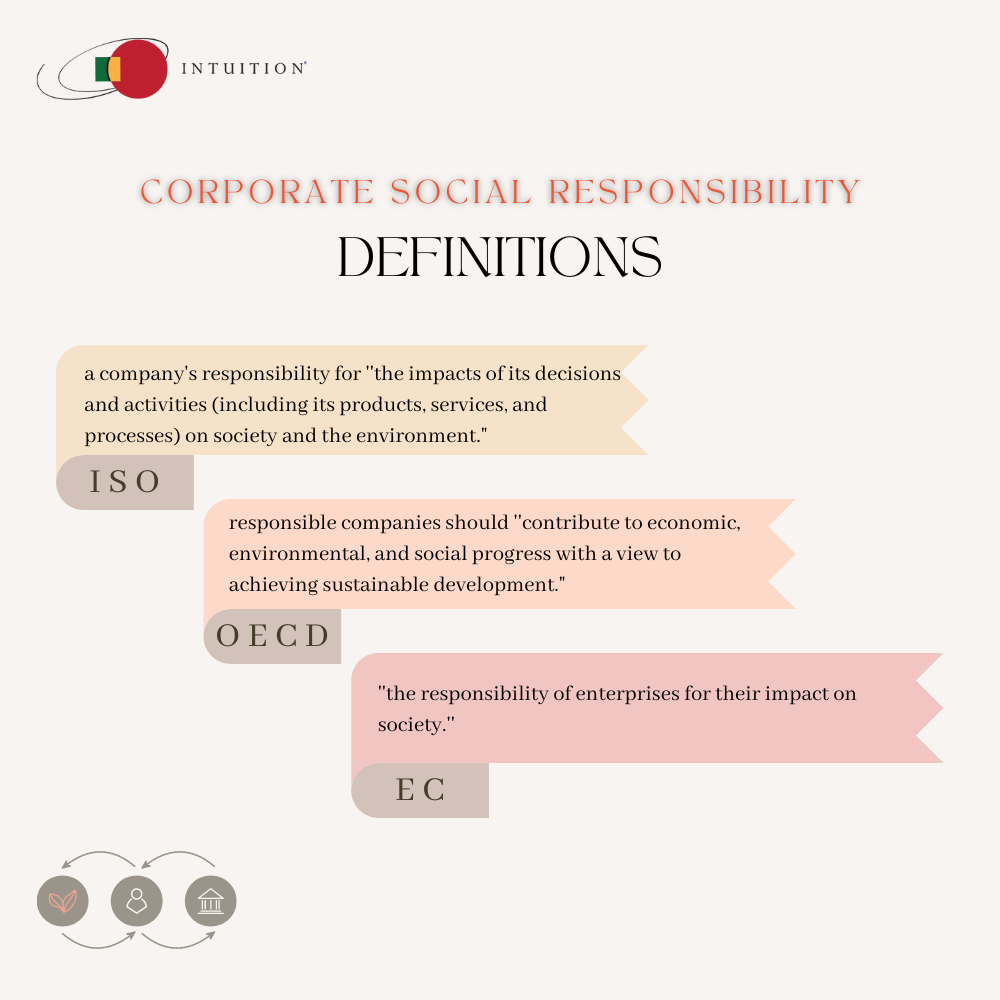Know-How spotlight: The importance of Corporate Social Responsibility
The below content is taken directly from the Corporate Social Responsibility tutorial in Know-How. This tutorial was added as part of our latest quarterly release. We also added a tutorial on Responsible Business Conduct.
These tutorials are suitable for financial professionals – including managers, experienced staff, and new entrants – who play a role in the ethical, accountable, and effective operation of their firms. All employees can benefit from an improved understanding of contemporary corporate governance/CSR standards and practices.
There is a popular image of the corporation as a free market entity exclusively concerned with the pursuit of private profit for the benefit of its shareholders.
But this wasn’t always the case.
The first corporate charters were granted by governments to perform specific public tasks such as the building of colleges, roads, and bridges.
Later, corporations began to be firmly associated with the private sector.
At that point, the corporation – and indeed business in general – began to be understood as an exclusively profit-making concern.
But since the 1970s, there has been a growing conviction that businesses must embrace social issues.
The era of shareholder value – a viewpoint that held that the planet and society were secondary to profit – held sway until the turn of the 21st century.
With the emergence of corporate social responsibility, otherwise known as CSR, it was recognized that business activities had implications for broader society that could no longer be ignored.
The global financial crisis and the Paris Agreement accelerated this process.
Today, in tandem with greatly increased awareness of environmental, social, and governance factors, we have reached the era of systemic value, which posits that business must operate within the boundaries of society and a planet viable to sustain life.
In short, neither CSR nor responsible business conduct, otherwise known as RBC, can be considered an optional aspect of corporate operations.
Instead, they are critical to satisfying the needs of a diverse group of stakeholders.

Overview of CSR/RBC
Definitions of CSR range widely.
A narrow definition may focus on a company’s obligation to comply with laws and regulations, whereas a more expansive one may look at how a company interacts with the broader environment and society in which it operates.
Let’s see how some bodies have defined CSR – they are a useful starting point for understanding the concept.
ISO
In 2010, the ISO launched ISO 26000: 2010, Guidance on Social Responsibility, a set of guidelines for corporations and other organizations seeking to implement CSR strategies.
ISO 26000 defines CSR as a company’s responsibility for ”the impacts of its decisions and activities (including its products, services, and processes) on society and the environment.” It occurs through transparent and ethical behavior that:
- Contributes to sustainable development, including health and the welfare of society
- Takes into account the expectations of stakeholders
- Is in compliance with applicable law and consistent with international norms of behavior
- Is integrated throughout the organization and practiced in its relationships
OECD
The OECD’s Guidelines for Multinational Enterprises on Responsible Business Conduct are an internationally recognized set of principles for responsible business.
Although they do not specifically define CSR, these voluntary guidelines state that responsible companies should ”contribute to economic, environmental, and social progress with a view to achieving sustainable development.”
European Commission
In its 2011 document “A Renewed EU Strategy for CSR,” the European Commission combined horizontal approaches to promote CSR/RBC with more specific approaches for individual sectors and policy areas.
The Commission’s strategy paper defines CSR as ”the responsibility of enterprises for their impact on society.”
It states that companies should have processes in place to integrate social, environmental, ethical, human rights, and consumer concerns into their operations and strategy, in collaboration with their stakeholders, with the objectives of:
- Maximizing the creation of shared value for their owners and shareholders and society at large, and
- Identifying, preventing, and mitigating potential adverse impacts
In 2019, as a follow-up to its 2011 strategy, the Commission published a working document called “Corporate Social Responsibility, Responsible Business Conduct, and Business and Human Rights: Overview of Progress.”
This provides an overview of the progress made by the Commission and European External Action Service (EEAS) in implementing CSR/RBC and business and human rights. It covers social, environmental, ethical, customer, and human rights (as defined by the 2011 strategy) and their international dimension.
The benefits of CSR are spread among stakeholders.
For enterprises, CSR and RBC deliver improved risk management, cost savings, access to capital, customer relationships, HR management, sustainability of operations, ability to innovate and, eventually, profit.
For the EU economy, CSR and RBC make companies more sustainable and innovative, which contributes to a more sustainable economy.
For society, CSR and RBC offer a set of values that can build a more cohesive society on which to base the transition to a sustainable economic system.
Putting CSR into action
Corporate social responsibility, otherwise known as CSR, is the idea that companies have a responsibility to the broader society in which they operate, one that goes beyond simply complying with local laws and regulations.
Proponents of CSR contend that the profit-making activities of companies can’t be separated from the wider social environment.
Companies’ activities always have consequences that go beyond their immediate sphere of operations.
By implementing a CSR strategy, companies can have a positive impact on the economy, the environment, and society.
This requires them to integrate social, environmental, and ethical concerns into their values, culture, strategy, and operations.
This may be achieved through a range of practices and policies, including philanthropic giving, employee volunteering, adopting environmentally sustainable manufacturing processes, sound corporate governance, and ethical supply chain management.
Adhering to CSR principles can also increase shareholder wealth in the long term.
So, implementing a CSR strategy allows companies to remain successful, grow shareholder wealth, and have a positive impact on society.


